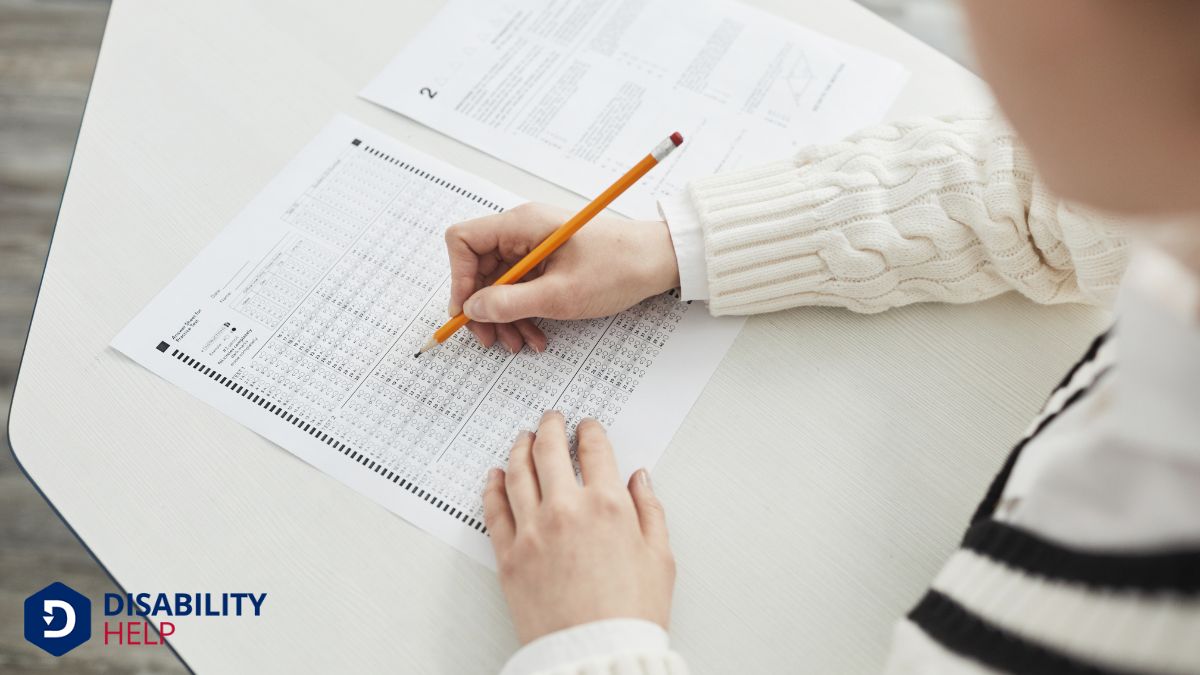When we're applying for certain positions or programs, medical exams often come into play. They guarantee we meet the necessary health standards for the roles we're pursuing, protecting both us and the organizations we aim to join. By identifying potential health issues, these exams help assess our eligibility and fitness for the demands ahead. But what exactly goes into these exams, and how do they influence decision-making? Let's find out.
Key Takeaways
- Medical exams ensure applicants meet the required health standards for eligibility.
- They help identify health conditions that could impact task performance.
- Exams provide critical information for assessing application risk and coverage terms.
- They confirm physical or mental fitness for roles with specific demands.
- Early detection of health issues allows for proactive management and solutions.
Understanding the Purpose of Medical Exams

When it comes to medical exams in the application process, understanding their purpose is key. We often find ourselves wondering why these exams are necessary. They serve to guarantee that applicants meet specific health standards, safeguarding both the individual and the organization.
By evaluating our health status, these exams help identify any conditions that might affect our ability to perform required tasks safely and effectively.
Let’s think of it this way: medical exams act as a protective measure, not just for the organization but also for us. They can uncover potential health issues early, allowing us to address them proactively.
Key Components of a Medical Exam
Although the specifics can vary based on the organization and role, the key components of a medical exam generally include a thorough physical assessment, a review of medical history, and a series of diagnostic tests.
We often start with a physical examination to evaluate essential signs, such as blood pressure and heart rate, and assess overall health.
Reviewing medical history helps us identify any past conditions or genetic predispositions that might affect our ability to perform certain roles.
Diagnostic tests, like blood tests or imaging, provide further insight into our health status.
These components work together to guarantee we’re physically capable and healthy enough for the job.
Understanding these elements can help us prepare effectively for what to expect in a medical exam.
Physical Fitness and Its Impact on Eligibility
When we consider the role of physical fitness in eligibility, it’s vital to understand how evaluating our physical health can influence the outcome of our application process.
Meeting the fitness standards required by various programs guarantees that we're not only physically prepared but also capable of handling the demands associated with them.
Assessing Physical Health
Evaluating physical health is crucial in determining an applicant's eligibility for many roles, as it directly impacts their ability to perform essential duties.
We need to guarantee that applicants can handle the physical demands of a position without compromising safety or efficiency. By appraising physical health, we can identify potential limitations and address them proactively.
This evaluation often includes a range of components that give us an extensive view of an applicant's fitness. These might include:
- Cardiovascular endurance: Can they sustain physical activity over time?
- Muscular strength: Do they've the power needed for tasks?
- Flexibility: Are they able to move easily and avoid injury?
- Body composition: Is their weight appropriate for their height and role demands?
- Balance and coordination: Can they maintain stability during activities?
Understanding these aspects helps us make informed decisions.
Fitness Standards Requirement
Establishing fitness standards is essential for ensuring that candidates meet the necessary physical requirements of a role. When we consider the diverse range of jobs out there, it’s clear that physical abilities can vary greatly in importance.
For example, a firefighter needs strength and endurance, whereas an office worker might not. By setting clear fitness standards, we’re not just testing physical capability; we’re ensuring safety, efficiency, and effectiveness in a role.
These standards help us determine if candidates can perform the tasks required without risking injury, both to themselves and others. It’s important that we, as applicants, understand these standards so we can adequately prepare and assess our own readiness for a given role.
After all, meeting these requirements is often vital for eligibility.
Impact on Application
Although it might seem intimidating, understanding how physical fitness impacts our application eligibility is essential.
Fitness assessments help determine if we meet the physical demands of our desired roles. Let’s explore some key aspects:
- Health Standards: Meeting required health standards guarantees we're fit for duty.
- Job Requirements: Physical demands vary by role, influencing eligibility.
- Competitive Edge: Higher fitness levels can set us apart from other applicants.
- Consistency: Maintaining fitness shows our commitment and discipline.
- WaiverA legal provision that allows states to forego certain requirements of federal law, often used in th... Potential: Some conditions might allow waivers, dependent on overall fitness.
Assessing Health Status for Program Demands
When considering the demands of a specific program, it’s essential to assess the health status of applicants to verify they can safely and effectively meet those requirements.
We need to understand that different programs have varying physical or mental demands. For instance, a program involving rigorous physical activity might require us to verify applicants possess a certain level of fitness.
Similarly, programs demanding high mental acuity need us to confirm that candidates can handle stress and cognitive challenges.
By conducting thorough health assessments, we verify not only the safety of participants but also their success within the program.
Let’s remember, these evaluations aren’t about exclusion but aligning the right individuals with the demands they’ll face, verifying a beneficial experience for everyone involved.
Identifying Potential Health Risks
As we explore the importance of aligning applicants with program demands, it's essential to focus on identifying potential health risks that might impact their ability to succeed.
Medical exams serve as a significant tool in this process, helping both applicants and programs understand any health challenges that could arise. By identifying these risks early, we can create tailored support plans and guarantee applicants are placed in environments where they can thrive.
Some common health risks include:
- Chronic illnesses: Conditions that require regular management, like diabetesA chronic condition where the body cannot produce or properly use insulin, leading to high blood sug... or asthma.
- Allergies: Reactions that could be triggered by specific environments.
- Physical limitations: Mobility or strength challenges.
- Mental health concerns: Anxiety or depressionA mental health condition marked by persistent feelings of sadness and loss of interest. that require attention.
- Unidentified conditions: Health issues that mightn't yet be diagnosed.
Meeting Specific Health Standards
Guaranteeing applicants meet specific health standards is crucial for their success in demanding programs. We acknowledge that these standards aren't just arbitrary hurdles; they guarantee participants can handle the physical and mental challenges ahead.
By adhering to these criteria, we safeguard everyone's well-being, guaranteeing that all participants have the stamina and resilienceThe ability of individuals with disabilities to cope with and adapt to challenges and adversity. needed to thrive.
When we discuss health standards, we're referring to benchmarks tailored to the program's demands. For instance, rigorous training programs might require cardiovascular endurance, while others might focus on mental health stability.
These standards are crucial and aim to protect participants from potential harm during the program.
Preparing for a Medical Exam
Having established the importance of meeting health standards, let's focus on how to effectively prepare for a medical exam.
Preparation is key to guaranteeing the process goes smoothly and accurately reflects our health status. Here are some practical steps we can take:
- Get a good night's sleep: Rest helps our body function effectively and can influence test results.
- Stay hydrated: Drinking water flushes out toxins and can aid in blood tests.
- Avoid caffeine and alcohol: These substances can affect blood pressure and other measurements.
- Bring necessary documents: Confirm we've identification and any required paperwork.
- List current medications: Having a list guarantees the medical professional has a complete picture of our health.
Addressing Health Issues Proactively
While preparing for a medical exam is essential, it's equally important to address health issues proactively. We should take charge of our well-being by scheduling regular check-ups, maintaining a balanced diet, and exercising consistently.
Early detection and management of health concerns can make a significant difference in our overall wellness and guarantee we're in the best shape for any medical evaluations.
Let's remember, prevention is often more effective than treatment. By staying informed about our health, we can make educated choices and potentially avoid complications.
Monitoring any existing conditions and communicating openly with healthcare providers can also help us stay ahead of potential issues. Addressing these proactively not only aids in the exam process but also supports a healthier lifestyle overall.
Navigating the Medical Exam Process
Maneuvering through the medical exam process can seem intimidating, but with some preparation, we can approach it with confidence.
First, let's understand what to expect. The medical exam typically involves a physical examination, medical history review, and possibly lab tests. Our goal is to present ourselves in the best possible light, highlighting our health and readiness.
Here are some steps to contemplate:
- Research: Understand what specific tests are required for our application.
- Schedule Early: Book appointments well in advance to avoid last-minute stress.
- Gather Documents: Collect necessary medical records and identification.
- Follow Instructions: Adhere to pre-exam guidelines, like fasting if needed.
- Stay Calm: Approach the exam day with a positive mindset.
The Role of Medical Exams in Decision-Making

As we explore the role of medical exams in decision-making, it’s important to recognize their impact on the overall application process.
Medical exams provide significant information about our health status, which can influence eligibility and risk assessment. For many programs and insurance policies, understanding an applicant’s health is fundamental in determining acceptance and coverage terms.
These exams help decision-makers evaluate our ability to meet specific health standards. They guarantee that applicants are fit for roles that require certain physical or mental capabilities.
For instance, in occupational settings, confirming the candidate can safely perform job duties is crucial.
Conclusion
In our journey through the application process, we've seen how medical exams are essential in ensuring we're fit for our roles. They help us understand our health status and identify any risks that might affect our performance. By proactively addressing health issues, we enhance our eligibility and safeguard our well-being. Let's embrace these exams as an important step, helping us make informed decisions that benefit both us and the organizations we're aiming to join.






